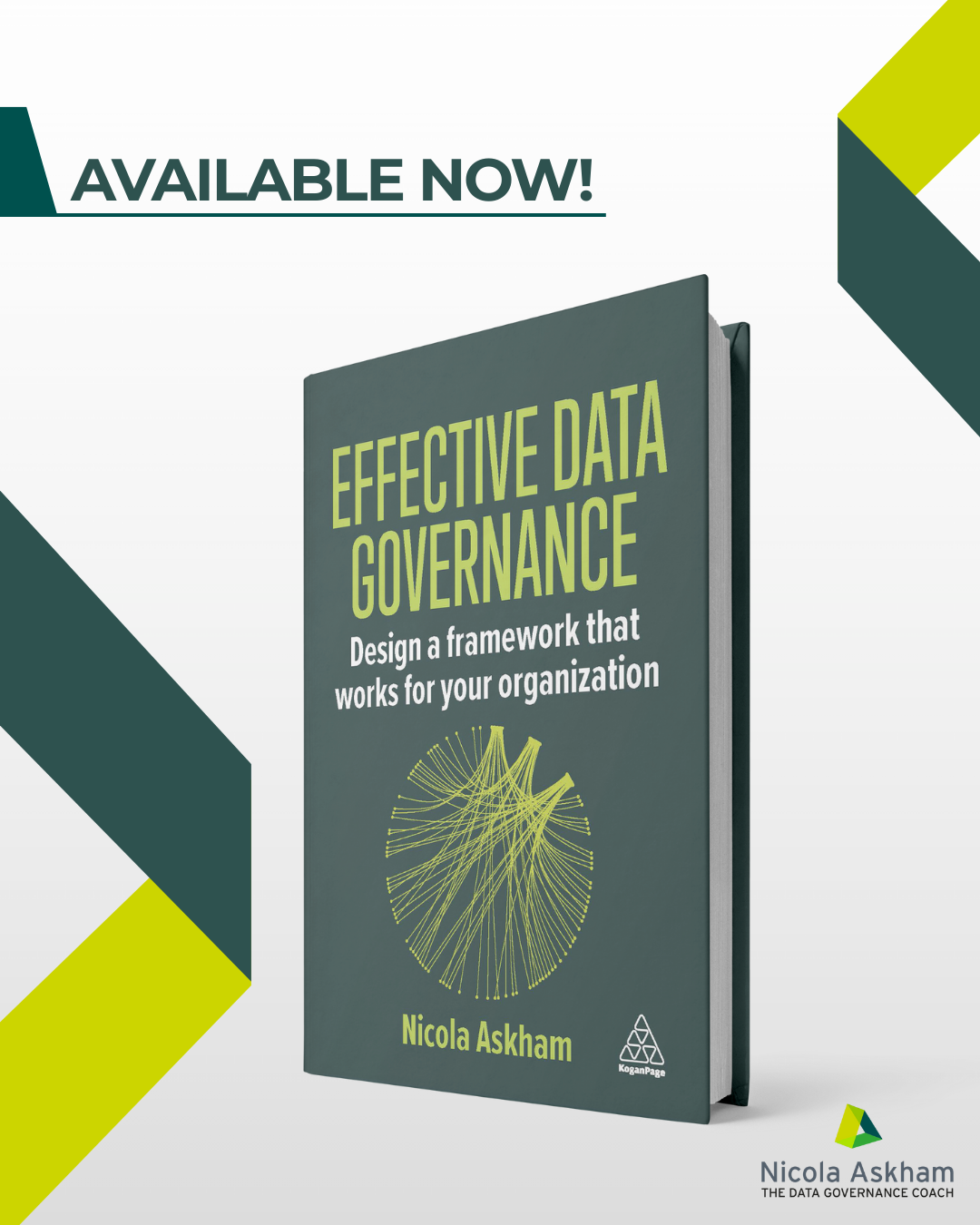Oui Chef!
/I’m thrilled to share this guest blog from Hyatt Saba, Data Governance Manager at Sage. I always enjoy my conversations with Hyatt about all things Data Governance - she has such a great way of bringing the topic to life through clever analogies.
In this blog, Hyatt draws on the world of professional kitchens to show how clear accountability and defined responsibilities are the key ingredients for successful Data Governance.
It's Saturday night and in the thick of dinner service at a popular new restaurant, table 7, order 2 raspberry and white chocolate soufflés to finish off their wonderful meal in celebration of their wedding anniversary. The Chef de Partie turns the oven dial to 200° C, she weighs the flour to precision, and lovingly folds in the top-quality ingredients. She pours the batter into the pots and opens the oven door to deposit her perfectly prepared desserts, only to discover that the oven is stone cold.
Aargh! What now? Well, it’s fair to assume that the majority of dessert services are out for the night. Let’s hope that the diners enjoy ice cream!
The hot potato...
So, whose responsibility is it to ensure the oven works? Is it the Chef de Partie who uses the oven and couldn’t fulfil her order? Is it the Head Chef who is accountable for the kitchen’s machinery and meeting financial targets (which will be negatively impacted from the inability to serve desserts) or was it the Sous Chef who is responsible for scheduling periodic maintenance?
Food for thought
No doubt, in a kitchen environment there might be some choice words - or knives thrown in the heat of the moment, but in the spirit of getting the kitchen back on track, it’s worth resisting the temptation to assign blame and instead get to the bottom of how the oven not working has fallen through the gaps to mitigate its recurrence. It’s of critical importance to understand accountability, and ensuring roles and responsibilities are in place for the kitchen to run more smoothly in the future rather than making assumptions, who ultimately should have checked the oven was working that day?
The same applies for data management. The purpose of assigning accountability and definite roles is to provide clarity and steer the management of data to avoid such situations from occurring.
Without clearly defined accountability and responsibility, things are left open to chance and are at risk of not consistently being done. We can easily assume that someone else will do it, or that it's someone else's job and that might be ok when everything is running smoothly, however as highlighted in the above scenario, what happens when luck runs out and things go wrong?
A recipe for success: Data Governance assigned roles
Taking chance out of the equation, reducing risk, and introducing rigor and quality are at the core of Data Governance with establishing and surfacing the accountability and responsibility of our data assets being a fundamental part of that. We do so through engaging with stakeholders and ascertaining how data is managed and who the decision makers are.
In the practice of Data Governance several roles exist, in this article, we will explore the following; Data Owner, Lead Data Steward and Data Steward.
Applying that to avoiding too many cooks in the kitchen:
It's important to know who is accountable for data and who is responsible for its upkeep - all doing the same thing without clear definition and agreement can cause confusion, duplication and the risk of things being missed. Governance is the answer to providing clarity, transparency and trackability: I think this concept bears a great likeness to the formal roles we all know exist in a restaurant kitchen.
In a restaurant we have a Head Chef who is accountable for overall kitchen management, menu creation, and culinary direction. A Head Chef may not have personally cooked the dish, but they are still accountable for every plate served. It needs to be what it says on the menu, allergies respected, food safety adhered to at each step of the preparation process, consistent portion control and presentation, whilst ensuring profitability and timeliness. While a Head Chef might not necessarily have held a pan in the preparation of the meal, they hold ultimate accountability, just like a Data Owner does for a data asset.
A Sous Chef who is second-in-command in the kitchen, assists the Head Chef and oversees day-to-day operations. They are the middleperson who takes that strategic direction and brings it into action often through delegation. They may oversee preparation, adjust the seasoning, organise machinery maintenance, arrange the appropriate garnish and serve-up on the right plate. A Sous Chef makes things happen, think of the Sous Chef as the Lead Data Steward.
Last but certainly not least is the Chef de Partie who is in charge of a specific section of the kitchen, such as the grill, pastry, sauces, etc. Think of a Chef de Partie as a Data Steward, who is often right in detail and a Subject Matter Expert (SME) in their own right. They know how to turn that boring pile of flour into a perfect souffle every time.
A culinary giant or a petite bistro
It’s worth calling out that there is often a distinction in terms of operations between a large organisation and a smaller organisation. In a smaller company one person might have several roles, they might be a Data Owner, a Lead Data Steward and a Data Steward. For example, the independent corner café will probably have the same person who owns and manages the running of the café, sources the coffee beans and makes the coffees whereas a Michelin-star restaurant might have someone who specifically cooks carrots to perfection.
Having the right roles for the size and type of kitchen – or business - ensures that those who know the job or data the best, are brought in at the right time for clarity and transparency, efficiency and creating trust through data.
Think about it as avoiding chaos and catastrophe in the kitchen by adopting Data Governance guidance to optimise workflow, ensure quality and minimise mis-stepping or miscommunication.
Just as in that kitchen, data assets without clear accountability and responsibilities will negatively impact the value chain to which we all contribute in one way or another. The proof is in the pudding.









